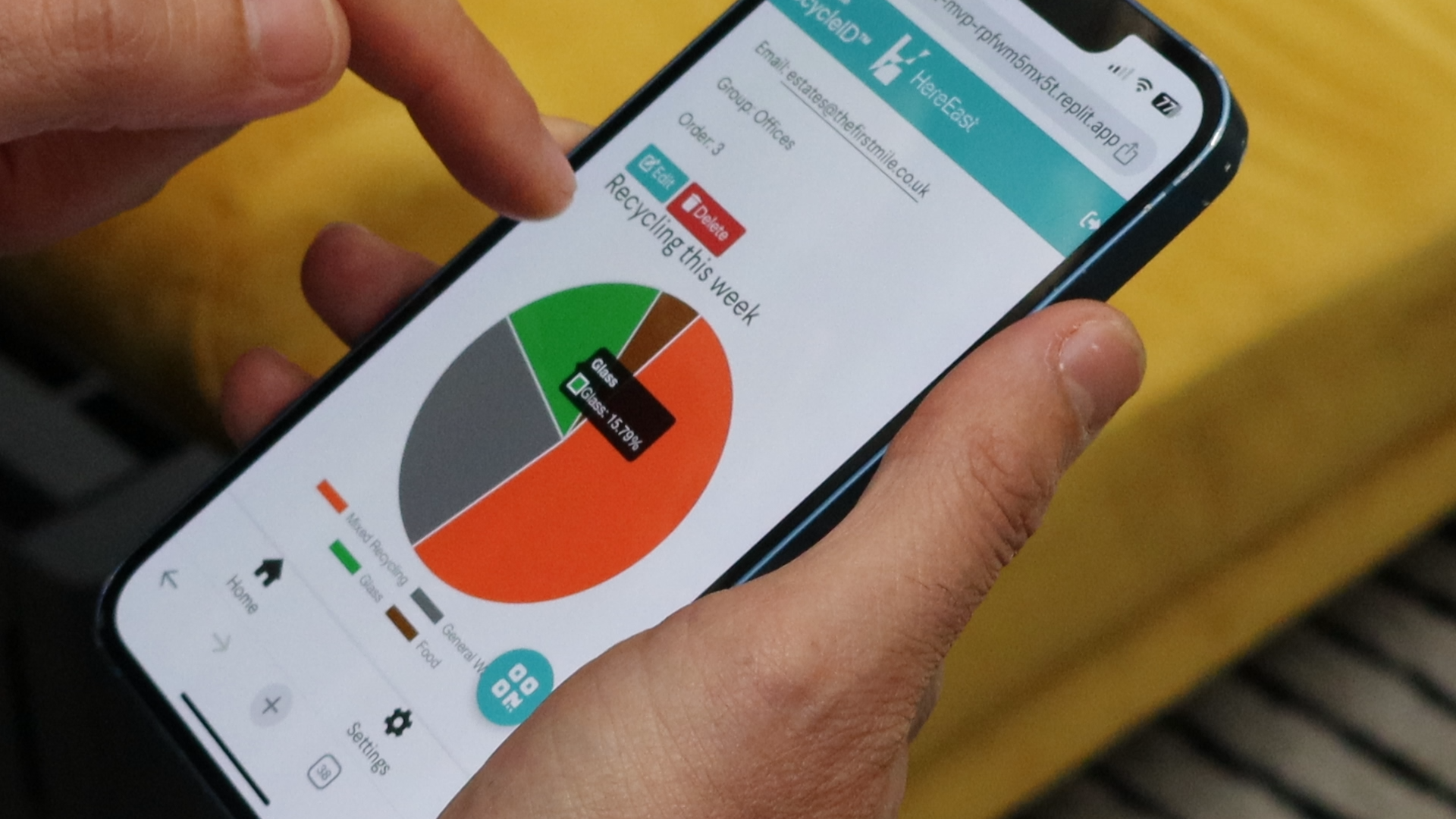There’s been a shift in the way things are packaged: greetings cards without plastic film around them; batteries in cardboard boxes without plastic windows; deliveries protected by card and paper padding instead of polystyrene.
It’s part of a move to a more sustainable world and it’s being accelerated by legislation called Extended Producer Responsibility (EPR).
If you’re a retailer or manufacturer producing packaging waste, you may need to comply with EPR regulations depending on your company size and how much waste your product generates.
What is Extended Producer Responsibility (EPR)?

Extended Producer Responsibility (EPR) makes anyone who manufactures, treats, imports or sells products (collectively known as the ‘producer’), responsible for ensuring their product packaging causes minimal environmental impact on disposal. New legislation has been introduced to shift the financial responsibility for packaging waste disposal to the producer, following the original EPR rules that covered end-of-life recycling and disposal of WEEE.
The new EPR legislation has been brought in to replace the Packaging Waste Regulations and it covers all the packaging used when a product is sold.
For example, the box, plastic film and glass bottle used for perfume; the single use cup used for takeaway coffee; the protective wrapping around products for delivery – packaging covers everything a product comes in or is despatched in.
Why the change? The aim is to incentivise producers (companies making or selling products) to consider the environmental impact of any packaging they generate.
These manufacturers and retailers will have to contribute to the recovery and recycling costs of any packaging waste associated with their products.
Shifting this waste responsibility to the producers means they are incentivised to move to more sustainable packaging options.
The Key Changes around EPR
All waste collection, including packaging waste, is the responsibility of local councils. Historically the cost of collecting, sorting, recycling and disposal of waste from homes and street bins has been funded by the taxpayer via council tax.
With the introduction of EPR, councils will receive additional funding from the fees collected from producers of packaging waste.
There are two key changes that producers must comply with:
1. Producers must cover the costs associated with managing packaging waste
The major EPR (Extended Producer Responsibility) change is that that the company/producer will be responsible for the costs associated with their waste from packaging.
The producer can loosely be defined as the company whose logo is on the product.

Here’s an example: a food manufacturer selling a product to a supermarket for sale under the supermarket’s own brand won’t be responsible for reporting and paying fees for that packaging, the supermarket will.
But if the manufacturer provides the supermarket with a product sold under their own brand, they are responsible for complying with EPR rules.
2. Producers must report data on the type and amount of packaging they place on the market.
In order to measure waste and calculate fees, a tracking and reporting system has been introduced. The reports will have to include type and weight of material, use and end destination (the full list of data required is here).
Why is it important for businesses to follow?
Reporting packaging data and paying the associated fees is a legal obligation for producers and non-compliance will result in fines. There will also be penalties for late submission of packaging data, though the exact fees have yet to be published.
It’s expected that it will motivate producers to source more sustainable supplied packaging options and waste management policies.
Using recycled materials, minimising packaging where possible and choosing packaging that can easily be recycled will mean lower costs for the producer.
How will the changes affect business?
It’s expected that the change in legislation will motivate producers to source more sustainable packaging options. Using recycled materials, minimising packaging where possible and choosing packaging that can easily be recycled will mean lower costs. The impact on the environment will be positive and the organisation will be helping to create a more sustainable world.
Businesses may need to make changes if they do any of the following packaging activities
-
Supply packaging and packaged goods in the UK market - this includes brand packaging
-
Place goods in empty packaging
-
Import their products with packaging supplied
-
Own an online marketplace
-
Hire or loan reusable packaging
-
supply or sell empty packaging materials
Not every business will need to report on EPR, and different requirements are in place depending on the size of the company and how much packaging waste is produced.
You can check how your business is categorised on the Government information pages for the Extended Producer Responsibility regulations.
Different timelines for compliance are in place depending on the size of the company and how much packaging material and waste is produced.
The deadline for reporting and fee payment for these new packaging regulations depends on the size of your organisation:
If you are a large organisation, the data you collect and report in 2024 will be used to calculate your recycling obligation and any waste management fees you must pay in 2025. Small organisations only need to collect data in 2024. They do not need to report.
Costs associated with EPR:

EPR is an opportunity for producers to innovate and become more sustainable, but there are financial implications.
Initially there may be supply chain costs associated with changing packaging to more sustainable options – packaging design changes, sourcing alternative materials, the potentially higher costs of using recycled materials.
This initial investment could pay off longer term though, with lower EPR fees for packaging made of at least 30% recycled material or for packaging that can easily be recycled.
By reducing the amount of packaging used (think about those greetings cards with no plastic film), companies can save money in production and reduce their EPR fees.
EPR Fees (also known as plastic packaging tax)
The payment of EPR fees has been delayed until 2025 (though reporting is still required). The government hasn’t yet published exactly what those fees will be, but one factor is a definite – there will be variable fees with lower charges for more sustainable packaging.
Information from the Government website:
EPR for packaging fees have been deferred for 1 year. Fees for packaging placed on the market in 2024 were starting in October 2024. They will now start in October 2025.
As soon as we can, we will give you an indication of what the material fees will be. These will vary depending on the materials you report.
In future, the waste management fee will also vary depending on how easily the packaging can be recycled. Your fee will be lower if you use packaging that is easier to recycle.
Extended Producer Responsibility Reporting - Packaging Data

The EPR reporting requirements for submitting data means extra admin for producers, but this can be eased by partnering with a waste and recycling firm who can help implement tracking systems.
The First Mile customer portal is a simple way to track and measure recycled materials including packaging. Using the portal makes it easier to comply with EPR legislation and reduce fees by increasing recycling rates.
Making recycling easier for consumers via schemes like First Mile’s Freepost Recycling service can also help with reducing EPR costs.
If you need some help with EPR legislation, get in touch and we’ll explain how our systems and processes will help you comply with packaging EPR.
What does the Packaging Scheme Administrator do?
And how will EPR regulations affect household packaging?
At the start of the year, Defra implemented a EPR Scheme Administrator, who are responsible for the mechanism for packaging producers to pay fees which will cover local authorities household packaging waste.
They will also oversee the allocation the EPR funds to local authorities and will have power to give local councils improvement plans if they aren't performing to satisfactory standards.
It is hoped that this will foster and environment of accountably and year on year improvement - spearheaded by Head for the UK Extended Producer Responsibility for Packaging Scheme Administrator, Dr Margaret Bates.
How does UK Extended Producer Responsibility link to Simpler Recycling
New extended producer responsibility legislation around packaging and other waste is coming thick and fast. Alongside EPR is Simpler Recycling which will change the way UK organisations apprach their recycling infrastructure, but there is a synergy between the two sets of regulations.
By labelling packaging clearly with recycling instructions, consumers are more likely to put waste in the right recycling stream - reducing contamination, relying less on raw materials and powering the circular economy.
These steps help improve recycling rates and ultimately help to reduce the environmental impact of the products we consume.
Get set up with First Mile
First Mile customers have reduced their recycling costs and got compliant for Simpler Recycling by setting up a dedicated Food Recycling stream with us.
We can tailor a solution to your specific needs, from waste audits and bin set-up optimisation to efficient collection and recycling. By diverting food waste from landfill and maximising recycling rates, we're helping our customers achieve their sustainability goals.
Get in touch with a member of our expert team to discover how much you could save with First Mile.


